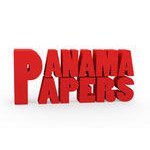
The world’s media has focused on one major corporate finance story recently. A huge leak of documents has lifted the lid on how the rich and powerful use tax havens to hide their wealth.
The files were leaked from one of the world’s most secretive companies, a Panamanian law firm called Mossack Fonseca.
So what are the Panama Papers, just how big is the corruption uncovered so far and what are the implications for holding companies who are operating perfectly legally in foreign jurisdictions?
BJ Chong, a partner and corporate law specialist with Palmers explained: “The files show how many Mossack Fonseca clients were able to launder money, dodge sanctions and avoid tax.
“In one case, the company offered an American millionaire fake ownership records to hide money from the authorities. This is in direct breach of international regulations designed to stop money laundering and tax evasion.”
The Panama Papers represents the biggest leak in history, dwarfing the data released by the Wikileaks organisation in 2010. According to the BBC, who give an example of the scale of the data involved, if the amount of data released by Wikileaks was equivalent to the population of San Francisco, the amount of data released in the Panama Papers is the equivalent to that of India.
There are links to 12 current or former heads of state and government in the data, including dictators accused of looting their own countries.
More than 60 relatives and associates of heads of state and other politicians are also implicated.
The files also reveal a suspected billion-dollar money laundering ring involving close associates of Russia’s President, Vladimir Putin.
Also mentioned are the brother-in-law of China’s President Xi Jinping, Ukraine President Petro Poroshenko, Argentina President Mauricio Macri, the late father of UK Prime Minister David Cameron and three of the four children of Pakistan’s Prime Minister Nawaz Sharif. The documents show that Iceland’s Prime Minister, Sigmundur Gunnlaugsson, had an undeclared interest linked to his wife’s wealth. He has now resigned. The scandal also touches football’s world governing body, Fifa.
Part of the documents suggest that a key member of Fifa’s ethics committee, Uruguayan lawyer Juan Pedro Damiani, and his firm provided legal assistance for at least seven offshore companies linked to a former Fifa vice-president arrested last May as part of the US inquiry into football corruption.
The leak has also revealed that more than 500 banks, including their subsidiaries and branches, registered nearly 15,600 shell companies with Mossack Fonseca.
In all, the details of 214,000 entities, including companies, trusts and foundations, were leaked.
The information in the documents dates back to 1977, and goes up to December last year. Emails make up the largest type of document leaked, but images of contracts and passports were also released.
BJ Chong continued: “Using an offshore structure is not illegal in and of itself and there can be legitimate reasons for doing so, such as where well-known companies are assessing routes into new markets, mergers and acquisitions and legitimate estate or tax planning
“Some of the main allegations which follow the disclosure of the Panama Papers, centre on the creation of shell companies, that have the outward appearance of being legitimate businesses, but are just empty shells. They do nothing but manage money, while hiding who owns it.
“It is important to emphasise that shell companies are different to legitimate multiple holding companies which can be set up as a useful asset protection planning strategy and help to mitigate business risks.
“An ideal business structure often consists of an operating entity that does not own any vulnerable assets and a holding entity that actually owns the business’s assets. With this structure, the small business owner can eliminate, or at the very least substantially limit, liability for both business debts and personal debts.
“A multiple entity approach takes planning and expert advice to balance, amongst other things, funding through both equity and debt, using leases, loans and liens. With the ensuing Panama Papers scandal, many companies may now be put off going along this road, but it is worth seeking expert advice before companies turn their backs on these structures. The old adage, of ‘not throwing the baby out with the bath water’ definitely applies here.”
For further information regarding the full range of legal support available to businesses, please contact us.
